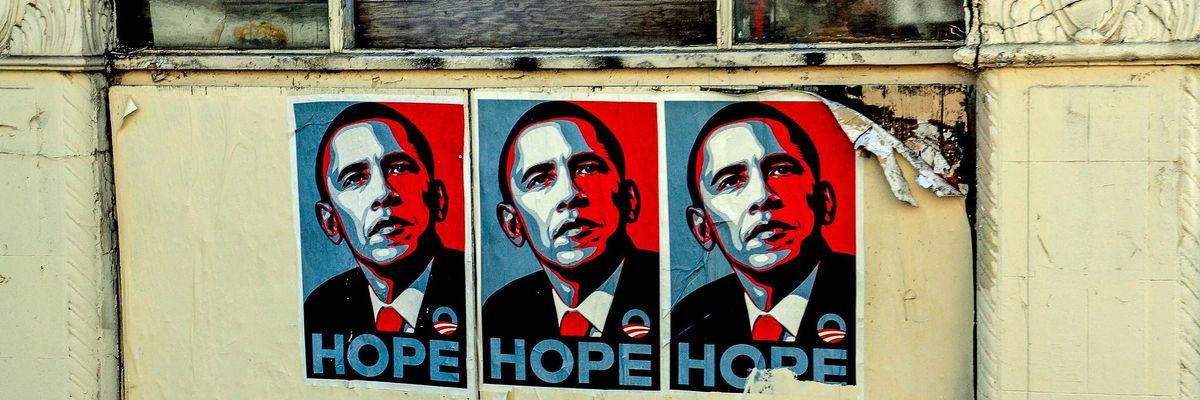Former President Barack Obama recently offered some pointed criticism of the Democratic party's "activist wing," cautioning candidates to not move too far left and to remain "rooted in reality."
"The average American doesn't think we have to completely tear down the system and remake it," Obama told an audience in Washington, D.C. "This is still a country that is less revolutionary than it is interested in improvement."
This is an odd take from a candidate who famously ran (and won!) on making major change, but it mirrors the feelings of establishment Democrats who remain uneasy of popular candidates including Vermont Sen. Bernie Sanders and progressive policies like Medicare for All.
Yet Obama's comments highlight an important division in the Democratic Party, one that's prompted the recent emergence of two new candidates: Deval Patrick, the former governor of Massachusetts and personal friend of Obama, and Michael Bloomberg, the former mayor of New York City.
Patrick says he entered the race over fears of a floundering Joe Biden, and Bloomberg was apparently prompted to run by his personal anxiety over the possible nomination of Sanders or Massachusetts Sen. Elizabeth Warren.
As much as the donor class is concerned with preserving old systems, voters are mainly funneling their energy towards building new ones.
These tensions come down to two competing theories of the Obama presidency. The first holds that Obama pushed the country too far left, causing a political backlash against a progressive administration that was out of touch with the American people. This is a favorite of the donor class and Democratic establishment, which urge a more moderate approach to win back Obama-Trump voters.
The other theory is almost exactly opposite. It holds that Obama promised "Hope and Change" but instead delivered boilerplate centrism that produced a disillusioned working-class, paving the way for a right-wing populist resurgence. Proponents believe the fabled Obama coalition is still out there, waiting to be ignited by a genuine leftwing platform, as shown by the enthusiasm for Sanders and Warren -- candidates who have called for "political revolution" and "big, structural change," respectively.
Obama's call for incrementalism shows he clearly believes the former. I think the evidence proves him wrong.
The fact is, Trump's voters did not crave centrism and moderation when they elected him in 2016. Trump, like Obama before him, was the candidate of big-time change. If anyone wanted to tear down "the system," it was the 2016 Trump voter.
When asked whether Obama was right in saying that "the average American doesn't think we have to completely tear down the system," Sanders replied, "Well, it depends on what you mean by tear down the system." He went on to note that his political agenda, including raising the minimum wage to a living wage, and guaranteeing health care coverage for all, is "supported by the vast majority of working people."
Which system is Obama worried about "tearing down," exactly? Of the progressive policies on the docket this primary, the only systems I see endangered are insurance companies, corporate profiteers, flagrant threats to a livable planet, and whatever hellish system is the one that puts kids in cages on the U.S.-Mexico border.
As much as the donor class is concerned with preserving old systems, voters are mainly funneling their energy towards building new ones. In the case of health care, America doesn't really have a "system" so much as a marketplace that sells health care services. Medicare for All is about finally building a system that works for everybody.
The Democratic establishment fails to properly recognize where the momentum lies, and Obama's calls for incrementalism only stand to embolden the status quo and needlessly stifle the most energized portion of his own party.




